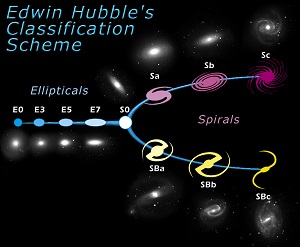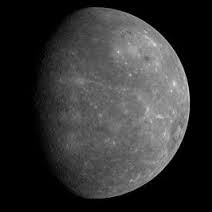|
TRANSLATE THIS ARTICLE
Integral World: Exploring Theories of Everything
An independent forum for a critical discussion of the integral philosophy of Ken Wilber
  Frank Visser, graduated as a psychologist of culture and religion, founded IntegralWorld in 1997. He worked as production manager for various publishing houses and as service manager for various internet companies and lives in Amsterdam. Books: Ken Wilber: Thought as Passion (SUNY, 2003), and The Corona Conspiracy: Combatting Disinformation about the Coronavirus (Kindle, 2020). Frank Visser, graduated as a psychologist of culture and religion, founded IntegralWorld in 1997. He worked as production manager for various publishing houses and as service manager for various internet companies and lives in Amsterdam. Books: Ken Wilber: Thought as Passion (SUNY, 2003), and The Corona Conspiracy: Combatting Disinformation about the Coronavirus (Kindle, 2020). ‘In Eros We Trust’Reflections on Integral ReligiosityFrank Visser
The integral message is a message of hope. For Spirit or Eros is on our side! “In Eros We Trust.”
In a long key passage of his introductory text to the recent Integral Christianity seminar "Return to the Heart of Christ Consciousness" (held in Boulder, March 27-30 2015) Ken Wilber, after having explained at length the essentials of his AQAL philosophy (stages, states, lines, types etc.), argues eloquently and fluently for a mystical view of the cosmos which is backed up by science, and doesn't have the drawbacks of ethnocentric and mythic fundamentalism. It also claims to be a step beyond materialistic and reductionistic science (paragraphs added for readability): 
[You] can be in direct relationship with the Ultimate Intelligence of
this whole universe—you can engage in "conversations with God" (as Neale Donald
Walsh's bestselling book put it). But we hasten to note that how you picture this
"Ultimate Intelligence" or "Spirit" or "Presence" will depend upon your level of
development (or Growing Up).
If you are mythic-literal, you will indeed likely view God as that grey-haired gentleman sitting on a throne in the sky; if you're at rational, you'll more likely see it simply as a vast global Intelligence or Higher Wisdom that you can draw on, and the reason this is not a myth or just a story is that this universe is not simply driven by chance and random mutations so that it is essentially meaningless and running downhill—which would make any belief in a Higher Wisdom indeed a myth.
But in fact,
the simplest look at evolution will show that it is running uphill—chance and randomness
is exactly what this universe is not doing—atoms to molecules to cells to organisms to
plants to fish to amphibians to reptiles to mammals to humans is a direct climb to higher
and higher and higher levels of wholeness and unity and inclusiveness and awareness and
intelligence—running downhill is exactly what that sequence is NOT doing—there is an
Intelligence or Wisdom—as we said, often called Eros—that is winding up that whole
series—systems theory today calls it "self-organization," and maintains that evolution is
driven by it.
But that's just a 3rd-person term for it; that's fine, but since you are also a product of that self-organizing drive, there is no reason you can't be in a direct relationship with that Intelligence—which is not just a great "It" but can be viewed as a "Great Thou" or pure "Presence" and as part of an "I-Thou" relationship—and you can do this because that organizing Wisdom is actually there, and it has been for 14 billion years—so talk to it, commune with it, open your heart and head to this extraordinary Brilliance, ask it questions, listen carefully for any sort of answers. Ask your question, and then simply say to yourself, "May whatever answer that arrives be from this Great Wisdom"—and then listen wholeheartedly. That Great Wisdom is there, it has created this extraordinary Kosmos we see everywhere, it created you—why on earth shouldn't you be able to directly address it? You are clearly in some sort of relationship with it. You can view it as God, or as Goddess, or directly as Jesus Christ or some other great saint or sage—or simply as divine "Presence"—and whatever response you get will, in large measure, depend upon the developmental stage that you are at—you might get magic, or mythic, or rational, or pluralistic, or integral. And yes, it is anthropomorphic—it is how a human being would hear this type of response. And so what? This Kosmos is alive and brimming with this creative Eros, this infinite Wisdom and Intelligence and Being and Consciousness and Light—how could we just shut our eyes to it?
Sit on the
edge of the Grand Canyon, or look up at the stars at night, and simply contemplate the
Mystery of existence—this Kosmic Wonder is a perfect form of connecting with Spirit in
2nd person, as a Great Mystery suffusing our entire being with Wonder. You are here,
you are existing, you are actually here right now—is that not a miracle? You don't need
a detailed answer, you just need to be embraced by the Wonder of it All. The sheer
Wonder. (Integral Christianity: Preliminary Overview, p. 33-35)
CONTEMPLATING THE MYSTERY
And where is this Higher Wisdom on other planets, even in our own Solar System, that don't show conditions favorable to the emergence of life?
This is, for sure, an inspiring message for a spiritually inclined audience, which gets implicitly reassured that science is on board too—even complexity science. For that science has supposedly shown that evolution—nay, the whole Cosmos—is driven by a mysterious Something called Eros or Higher Wisdom to produce complexity and consciousness. On that foundation, Wilber erects his religious superstructure of the three Faces of Spirit (the traditional Trinity of the mythic religions retranslated into the integral speak of I, We and It). But what if that foundation is shaky? In Wilber's universe, Spirit-as-It or the Third Person of God is the material universe, from the simplest of subatomic particles to the complexity of the human brain suffused with a spiritual drive. Spirit-as-We, or the Second Person of God, is a Cosmic You that can be addressed and experienced. And Spirit-as-I or the First Person of God is the Ground of all Being each of us supposedly can identify with. In Wilber's view, the last two represent a deeper truth than the merely objective view of reality, but I will focus on that third aspect in this essay.  “simply contemplate the mystery of existence...” Wilber makes a slippery argument going from "the universe isn't winding down, but winding up" to "there's a Higher Wisdom behind it all" to "this can also be experienced in a personal and intimate way in an I-Thou relationship" to "you are in fact identical to that Wisdom in a Supreme Identity". The alternative, supposedly being, that "[the universe] is essentially meaningless and running downhill—which would make any belief in a Higher Wisdom indeed a myth." But what if that Higher Wisdom is indeed a myth? I have dealt with this question of what "drives" the cosmos or evolution ad nauseam on Integral World in various essays (e.g. "Is the Universe Really Winding Up?"). Briefly, the universe as a whole is definitely "winding down", to use Wilber's terminology (which does suggest an original winding up, but that's a different story), following the Second Law of Thermodynamics. The universe is expanding and cooling and will last until the last star has burnt up its mass. A bleak future indeed. An interesting question to research would be: to what extent is Wilber's Eros the major force in the cosmos, or only a force? How does it relate to the entropic process of winding down, which he seems to acknowledge as well, but only in passing? Is Eros only locally active, e.g. on Earth, or in a universal way? And which of the two process will win in the end? For integralists Eros has taken the place of Spirit or God, which suggests an ultimate meaning of the term. But where does that leave the universal tendency of all complexity to fall apart? On our planet Earth, evolution does give us the impression of a progressive process of mysteriously "winding up", but this argument in no way contradicts the Second Law, given the fact that we receive abundant energy from the Sun to accomplish these facts. And where is this Higher Wisdom on other planets, even in our own Solar System, that don't show conditions favorable to the emergence of life? Should we not, in fact, have a much closer look at these conditions to explain evolution? For sure, there's nothing wrong with wonder. On the contrary, many "reductionistic" scientists experience a deep feeling of wonder for the cosmos as a whole—nay, even for the tiniest of ants. Richard Dawkins' autobiography is called An Appetite for Wonder. In Unweaving the Rainbow, he made this feeling explicit: "Dawkins addresses the misperception that science and art are at odds. Driven by the responses to his books The Selfish Gene and The Blind Watchmaker wherein readers resented his naturalistic world view, seeing it as depriving life of meaning, Dawkins felt the need to explain that, as a scientist, he saw the world as full of wonders and a source of pleasure. This pleasure was not in spite of, but rather because he does not assume as cause the inexplicable actions of a deity but rather the understandable laws of nature." (Wikipedia) It is also not the case, as repeatedly stated by misinformed integralists, that science cannot handle progress in evolution. Dawkins again: [A]daptive evolution is not just incidentally progressive, it is deeply, dyed-in-the-wool, indispensably progressive. It is fundamentally necessary that it should be progressive if Darwinian natural selection is to perform the explanatory role in our world view that we require of it... (The Ancestor's Tale, p. 248) So it is not so much progress as such that is denied by conventional scientists, as well as the mechanism Wilber proposes to explain everything from atoms to human beings. As I wrote a few years back in "Ken Wilber's Mysterianism": Either there is a drive behind evolution, or there isn't. If 99,99% of all evolutionary theorists don't buy this idea, shouldn't this tell us something? If Wilber aims at revolutionizing evolutionary theory in any fundamental way, he still hasn't, after all these years, made a compelling case. The developmental scheme might have some validity even without a notion of Eros. The difference would be, that the whole process would be much more fragile and uncertain. Without the "infinitely powerful Force" Wilber postulates, the integral pathos of "Spirit is on our side" would evaporate. All responsibility for a better future would be ours. The key statement in this introductory text by Wilber is: "the simplest look at evolution will show that it is running uphill". That however, doesn't warrant the notion of a spiritual drive behind evolution at all. Many naturalistic evolutionary theorists will go along with the idea of increasing complexity, though they are reluctant to postulate this as a universal law, as Wilber does without any reservations. We need much, much more than "the simplest look at evolution"! Wilber's "case" rests on the assumption that conventional science is dumbfounded by the complexities of nature and the progressive nature of evolution, and that complexity science now has solved this riddle by introducing the notion of self-organization, as a stepping stone to his more spiritual interpretation of reality. But self-organization, for what it's worth, doesn't create elephants and butterflies. It's actually natural selection that has accomplished these facts of nature.  Hubble's classification scheme Having "covered" the area of science, Wilber quickly suggests that this mysterious Higher Wisdom behind the cosmos and evolution can be contacted directly, to answer your deepest questions and longings. That is, however, a tall order to believe. Not to mention that we are this Wisdom in our deepest identity. So we can talk now to the Cosmic You and expect an answer? Honestly? We are even one with and identical to its Ground of Being? Dawkins would call this "cosmic sentimentality"—and I am afraid I would concur very much. These theistic and mystical notions date from a time when the earth was flat, and there wasn't the slightest understanding of cosmic reality. In fact, it was only in 1923 that Edwin Hubble discovered that other galaxies outside of our own Milky Way existed! The integral message is a message of hope. For Spirit or Eros is on our side! If only more people could see this! "In Eros we Trust" could be a nice integral motto. But given the centrality of this notion, the dearth of informed studies of evolution from the integral point of view is surprising—to put it mildly. Conference after conference is spent on the manifold blessing the integral view will bestow on the world and its problems, but when it comes to evolution, integralists need to do their homework. Of course, integralists will predictably respond to this line of criticism by stating that only a spiritual mind can see these deeper truths, but given the fact that Wilber always argues for these truths by pointing to shortcomings of science, things are not that simple. Religiously anyone is free to believe whatever he or she wants. But then leave science alone and be happy. As soon as science is introduced in the religious apology, it places the burden of accuracy and expertise squarely on the shoulders of the integral students. This is not about having a few minor details wrong in an otherwise grand system of philosophy, but goes to its very foundation.
|
